Acne & Hyperpigmentation have many causes and treatments. Read on to find out more.
SKIN
Acne, also known as acne vulgaris, is a skin condition where hair follicles are clogged with oil and dead skin cells. Excess oil production from the oil glands or sebum comes from bacteria, hormones, dead skin cells or hair follicles.
Some common acne triggers are diet, hormones (commonly with teenagers or women), stress and dirt. If you have sensitive skin, you have a higher chance of getting acne as your skin is very reactive to any environmental agents.
There are 6 different acne types – blackheads and whiteheads, papules, pustules, nodules and cysts.
Blackheads (open comedones)
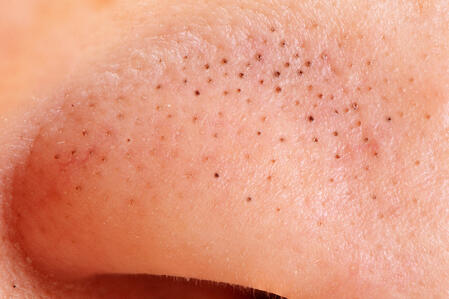
Blackheads occur when a combination of dead skin cells and sebum clog pores. The pore stays open, although the rest of it is clogged. This results in the black colour seen on the surface of the skin. They are common on and around the nose.
Whiteheads (closed comedones)
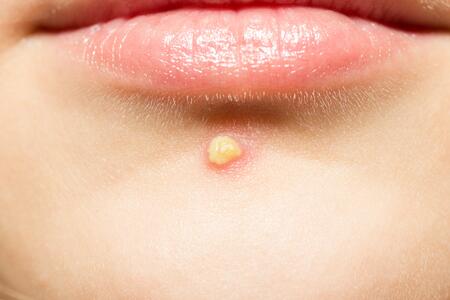
Just like blackheads, Whiteheads also form when a pore gets clogged by sebum and dead skin cells; however, in this case. The top of the pore closes up. They look like small bump on the skin.
Blackheads and whiteheads are considered mild acne. Although whiteheads can be more difficult to treat due to the closed pores, products like salicylic acid and topical retinoids work best with comedonal acne. If these products do not work for your skin, you can get them medically reviewed for more suitable treatment.
Pustules
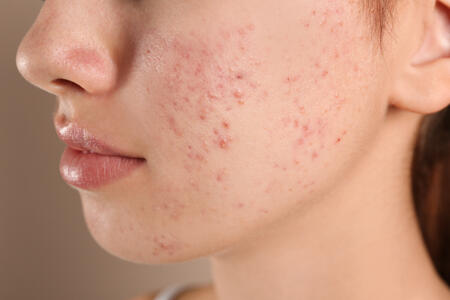
Pustules, also commonly known as pimples, form when the walls around your pores break down. These small, red bumps come out from the skin and are usually red in colour and have yellow or whiteheads with pus, protruding from the skin.
Papules
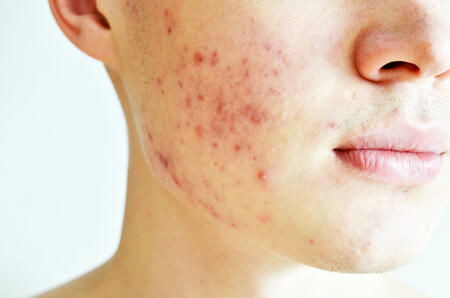
Papules occur when the walls surrounding pores break down due to severe inflammation. This results in hard, clogged pores.
Products containing benzoyl peroxide may help reduce swelling, remove excess sebum to treat pustules and papules. You may be prescribed either an oral or topical antibiotic along with benzoyl-peroxide and topical retinoids to reduce inflammation.
Nodules
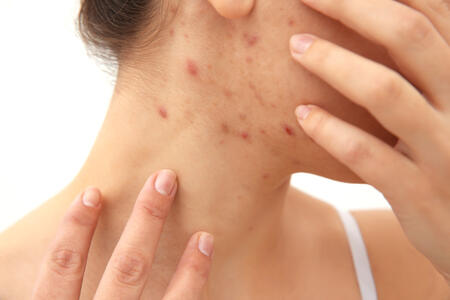
Nodules occur when clogged pores experience further irritation and grow larger. Unlike pustules and papules, nodules are deeper underneath the skin.
Since nodules are very deep into the skin, you usually require prescribed medication to treat this acne.
Cysts
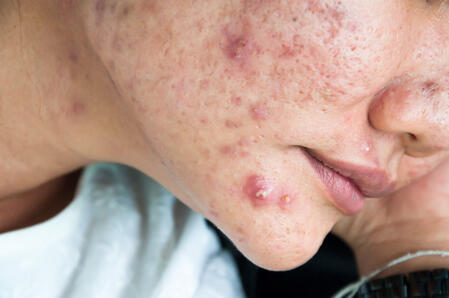
Cysts develop when pores are clogged by bacteria, sebum and dead skin cells altogether. The clogs occur deeper in the skin, below the surface than nodules.
They are large red or white bumps that are often painful when touched. Cysts are the most serious form of acne, which usually results from an infection.
The prescription medication isotretinoin (Sotret) is commonly used to treat cysts. It can treat and prevent nodules and cysts by decreasing oil gland size in the pores.
In severe cases, your dermatologist may surgically remove a cyst.
Hyperpigmentation is caused by an excess production of melanin in the skin. This is caused by excessive sun exposure, inflammation, or other skin injuries, including those related to acne.
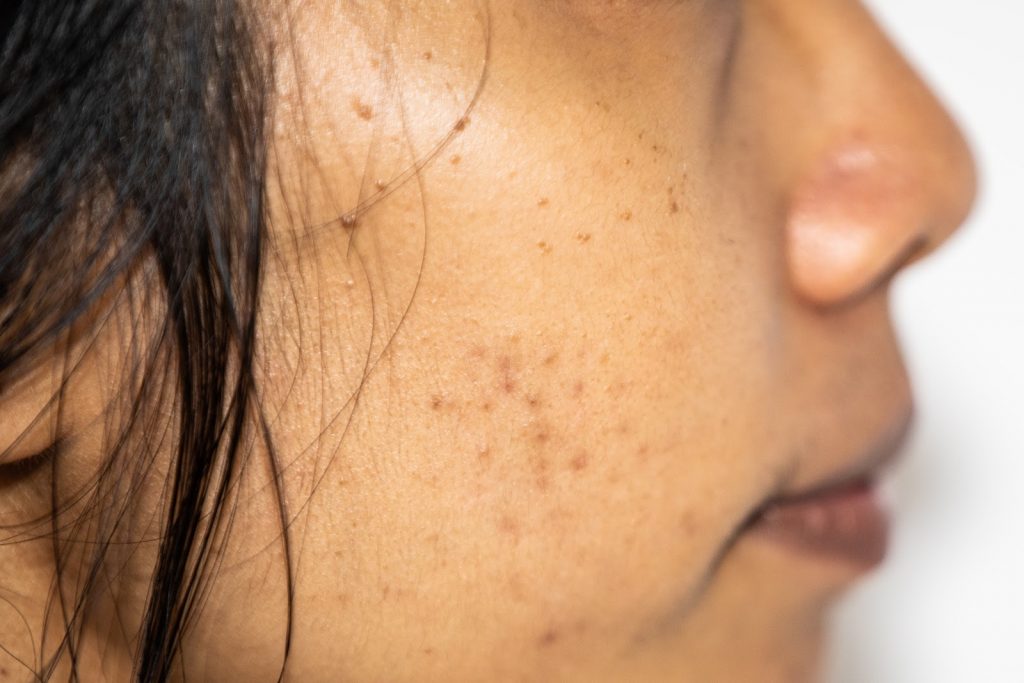
People with darker skin tones have a higher tendency to hyperpigmentation, especially if there is no sun protection. Hyperpigmentation occurs as a result of acne. If you regularly pick on your acne by squeezing them, they may cause acne scars like dark spots on the face.
Although acne and hyperpigmentation are most common among teenagers, it can affect people of all ages and skin conditions. Treating acne is a tough process as not all products and acne medications work for everyone.
Acne treatments are done by removing excess oil from the skin. It is important to know your skin type before including some useful products in your skincare routine. Some common treatments are azelaic acid, retinoids and benzoyl peroxide. Consult a dermatologist if you are looking for suitable treatments for your skin without having adverse side effects.
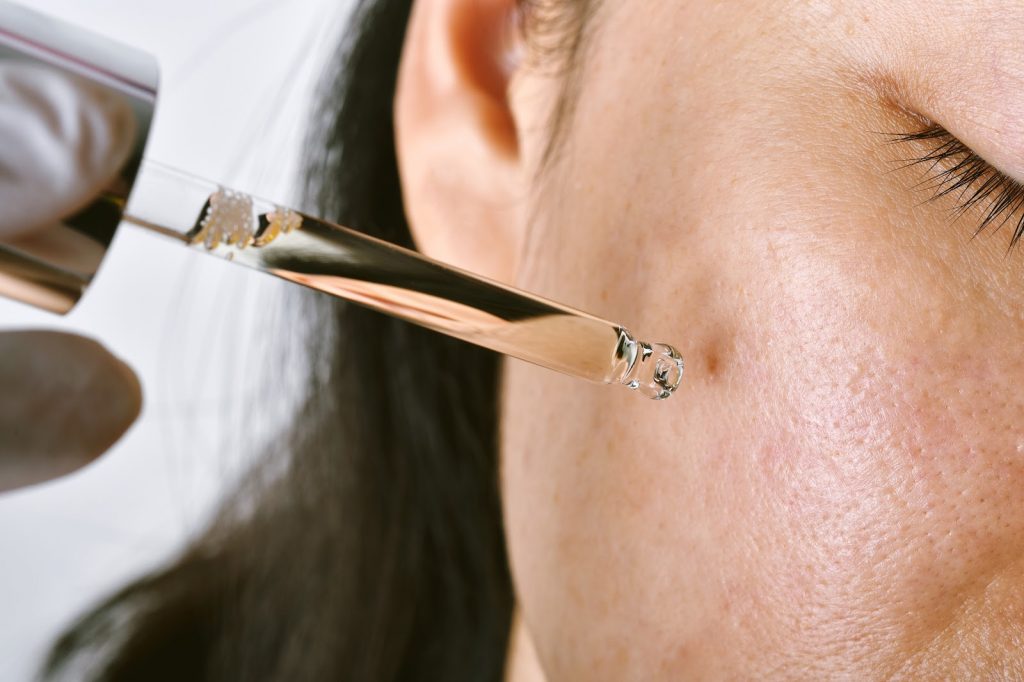
Treating hyperpigmentation is similar to acne. Some common products are alpha hydroxy acid (AHA), kojic acid and glycolic acid. These are some common home remedies. However, if you are experiencing severe inflammation and pain, you may need professional scrutiny and treatments to aid in the healing.
If not well taken care of, the acne type can lead to scarring, which is deep pitted into the skin and requires medical treatments to resurface the skin. Treat your skin before it reaches that stage! Read more about our Madonna Facial and Chemical Peels.
Frequently Asked Questions
Acne is caused when the pores on the skin become clogged with oil, sebum, dirt and bacteria.
This results in the development of whiteheads, blackheads and various types of pimples.
Acne can be cleared by having a suitable skincare routine, eating healthier
